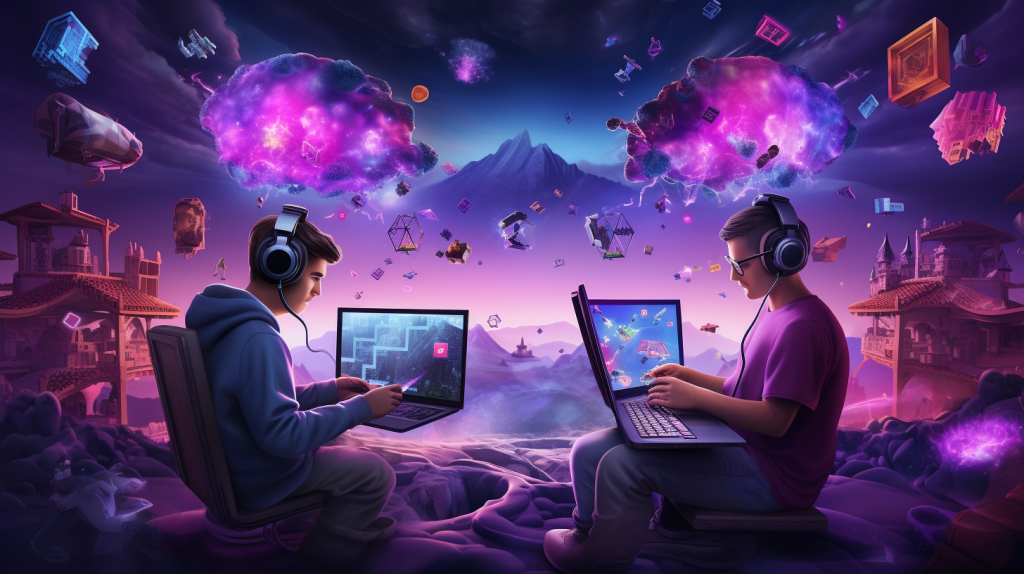Cloud gaming has made significant strides over the past few years, transforming how gamers experience their favorite titles. With platforms offering the ability to stream games directly to a variety of devices without the need for powerful hardware, many have started to wonder: Could cloud gaming eventually replace traditional consoles?
As we move further into the digital age, cloud gaming is presenting a new frontier for the gaming industry. But while the concept of playing high-end games on almost any device seems appealing, the question remains—will it fully replace the need for traditional consoles?
What Is Cloud Gaming?
Cloud gaming, or game streaming, allows players to play video games without the need to download or install them on a local device. Instead, the games are run on remote servers, with the video and audio transmitted to the player’s screen in real-time. All the heavy processing is done in the cloud, which means gamers can access and play their favorite titles on devices like smartphones, tablets, and even low-powered PCs.
This new way of gaming is convenient, as it eliminates the need for large storage spaces and expensive hardware upgrades. Instead, gamers simply need a stable internet connection to stream games from cloud platforms. But is this enough to convince players to ditch their physical consoles?
The Appeal of Cloud Gaming
One of the most appealing aspects of cloud gaming is accessibility. Traditional consoles often require gamers to invest in costly hardware to enjoy new titles, and updates or patches can take up significant storage space. With cloud gaming, players can enjoy a seamless experience without worrying about hardware limitations or downloads. All they need is an internet connection.
Another major benefit is portability. Unlike traditional consoles, which are limited to a specific location in the home, cloud gaming enables players to access their games from almost anywhere—whether on their smartphone during a commute or on a laptop in a different room. This flexibility opens up gaming to a broader audience, especially those who don’t have the space or desire to set up dedicated gaming stations.
Additionally, cloud gaming offers the possibility of instant access to new titles. Instead of waiting for a game to be downloaded and installed, players can start playing almost immediately. This convenience factor is increasingly important in an age where speed and efficiency are highly valued.
The Limitations of Cloud Gaming
While cloud gaming has its advantages, there are several challenges that could prevent it from completely replacing traditional consoles in the near future.
1. Internet Speed and Stability: The biggest hurdle cloud gaming faces is the reliance on a fast and stable internet connection. While high-speed internet is becoming more accessible, not everyone has the infrastructure to stream high-quality games without lag or buffering. Areas with slower internet speeds may struggle to provide a satisfying gaming experience, making traditional consoles a more reliable option for many players.
2. Latency Issues: Even with the best internet connection, cloud gaming can still suffer from latency. This delay between input and response can be noticeable in fast-paced games, leading to a frustrating experience. While technology is improving, it may take some time before latency is minimized enough to match the responsiveness of a traditional console or PC setup.
3. Game Library: Although cloud gaming services are expanding their offerings, the selection of games available may not yet match the variety and depth offered by traditional consoles. Many big-name titles or franchises may still be unavailable or only offered on specific platforms, which could limit the appeal of cloud gaming for some players.
4. Cost of Streaming Services: Cloud gaming requires a steady subscription model to access the service, which could add up over time. For many, owning a console or gaming PC offers a one-time purchase option, and they can continue using it for years. Subscription costs for cloud gaming services could potentially outweigh the savings from not having to buy a physical console, especially for casual gamers.
The Role of Traditional Consoles
Despite the growing interest in cloud gaming, traditional consoles still have several advantages that make them a preferred choice for many. Consoles like the PlayStation, Xbox, and Nintendo Switch offer high-quality graphics, extensive game libraries, and a dedicated gaming experience that doesn’t rely on external factors like internet connectivity. For many gamers, the stability and reliability of a physical console still outweigh the potential benefits of streaming games from the cloud.
Consoles also offer more best experiences with specialized peripherals, such as VR headsets, motion controllers, and customizable controllers. These extras often provide a unique edge to traditional gaming that cloud services may not be able to replicate in the near future.
Moreover, consoles don’t require a constant internet connection to work, giving players more freedom to play when and where they choose. In areas with limited or inconsistent internet, a traditional console might still be the best option for uninterrupted gaming sessions.
The Hybrid Future
Rather than replacing traditional consoles, cloud gaming is likely to coexist alongside them, offering a hybrid model where players can choose the best option for their needs. For instance, gamers who prefer high-quality, offline play may continue to rely on their consoles. Meanwhile, casual gamers, or those who frequently move between different locations, might gravitate toward cloud gaming for its convenience and flexibility.
Additionally, consoles themselves are beginning to integrate cloud gaming features. Services like Xbox Cloud Gaming and PlayStation Now allow console owners to stream games directly to their devices, combining the best of both worlds. This hybrid approach might be the future of gaming, where players can switch seamlessly between local and cloud gaming depending on their circumstances.
Conclusion
While cloud gaming offers significant benefits in terms of convenience and accessibility, it is unlikely to fully replace traditional consoles in the near future. Factors like internet speed, latency issues, and the need for a reliable game library still pose significant challenges. However, the future of gaming will likely involve a combination of both cloud and console gaming, with each option catering to different types of players. As technology continues to evolve, cloud gaming will undoubtedly play a larger role, but for now, consoles remain an integral part of the gaming experience.

